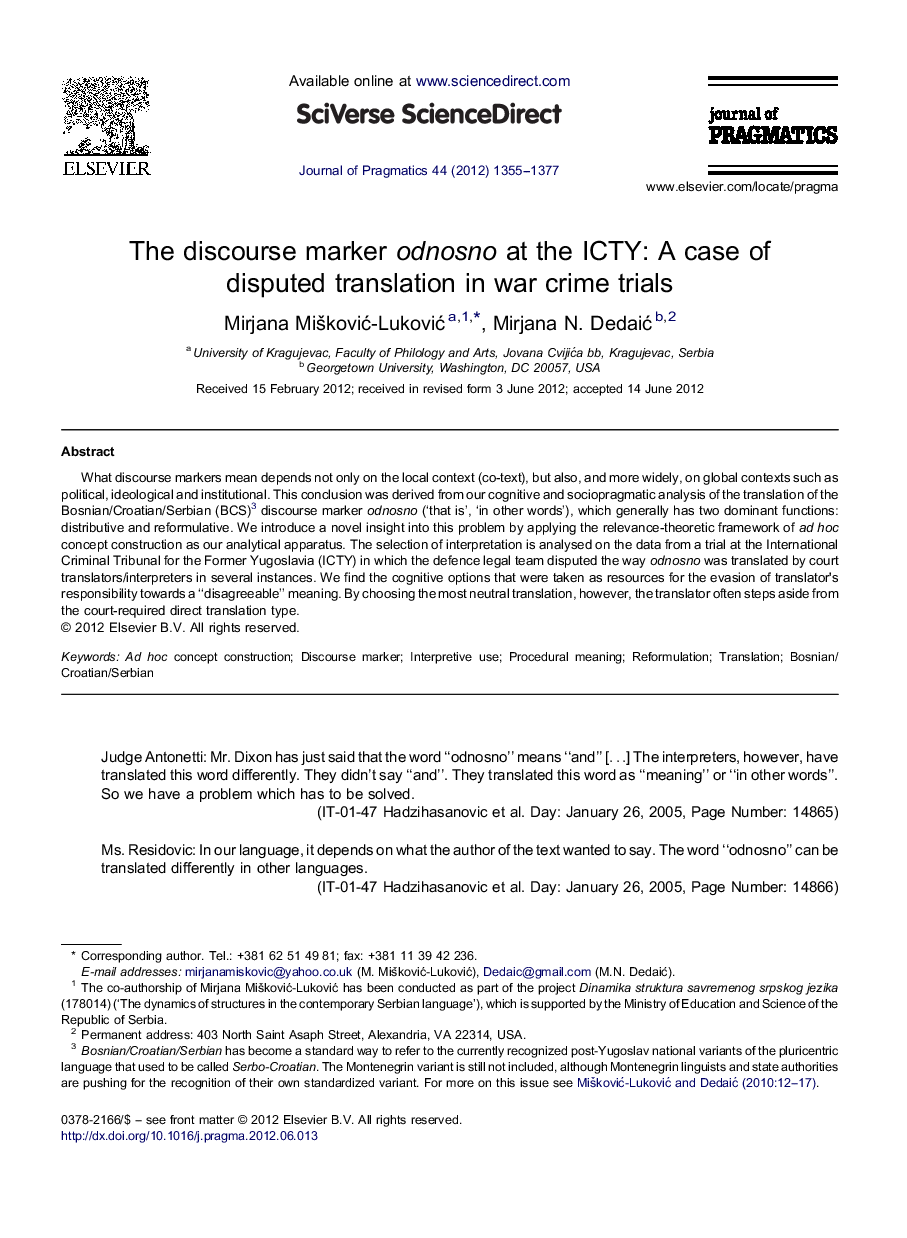| Article ID | Journal | Published Year | Pages | File Type |
|---|---|---|---|---|
| 933189 | Journal of Pragmatics | 2012 | 23 Pages |
What discourse markers mean depends not only on the local context (co-text), but also, and more widely, on global contexts such as political, ideological and institutional. This conclusion was derived from our cognitive and sociopragmatic analysis of the translation of the Bosnian/Croatian/Serbian (BCS)3 discourse marker odnosno (‘that is’, ‘in other words’), which generally has two dominant functions: distributive and reformulative. We introduce a novel insight into this problem by applying the relevance-theoretic framework of ad hoc concept construction as our analytical apparatus. The selection of interpretation is analysed on the data from a trial at the International Criminal Tribunal for the Former Yugoslavia (ICTY) in which the defence legal team disputed the way odnosno was translated by court translators/interpreters in several instances. We find the cognitive options that were taken as resources for the evasion of translator's responsibility towards a “disagreeable” meaning. By choosing the most neutral translation, however, the translator often steps aside from the court-required direct translation type.
► The meaning of the BCS word odnosno appears to be ambiguous or indeterminate. ► Odnosno has two dominant functions: distributive and reformulative. ► Distributive odnosno: two conjuncts are both separately relevant. ► Reformulative odnosno signals an inferential connection between constituents. ► The translations reflect an ideologically motivated evasion of responsibility.
